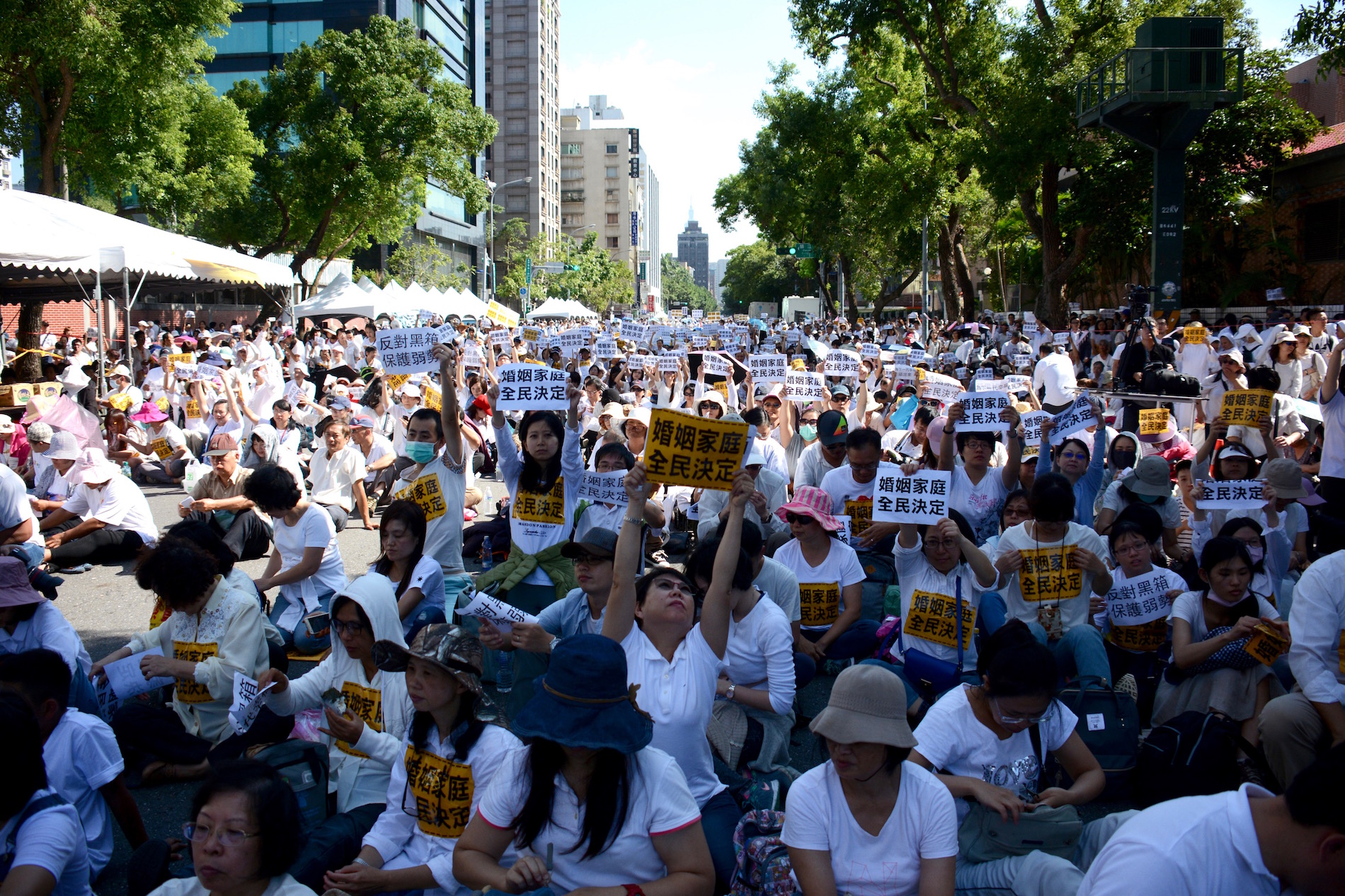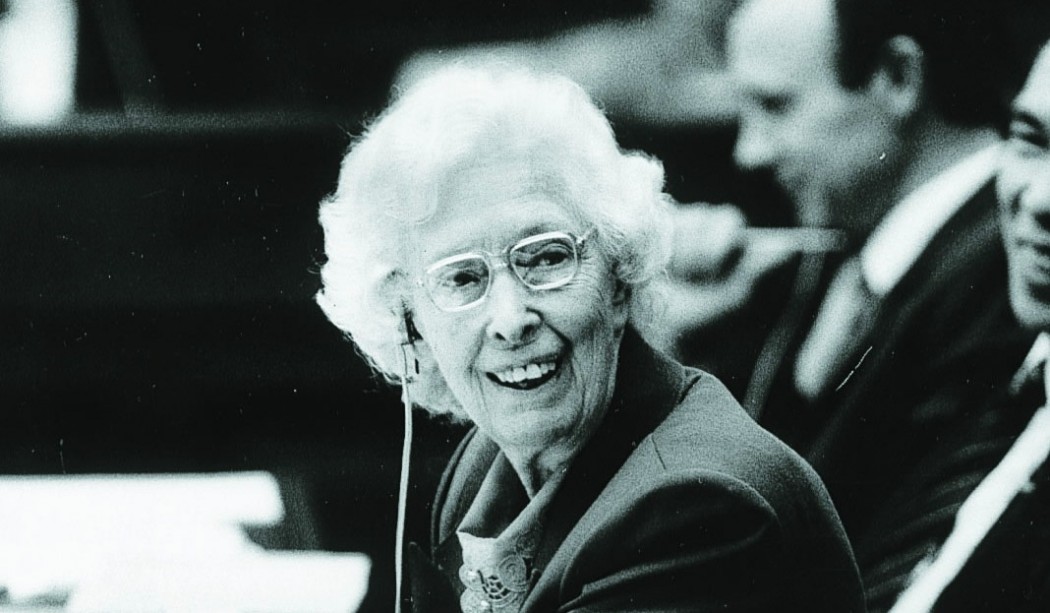We want our homophobia back! It is an important personal possession that we have had since time immemorial, and it has been stolen from us. We need to have it returned intact, huge, ugly and odorous. Only then can we deal with it.
I’ve lost count of the times I have been told that homophobia was introduced to my hometown, Hong Kong, by evangelical Christians from the United States. The implication is that Hong Kong (often East Asia in general) was a sort of free-wheeling LGBT paradise before these nasty foreigners arrived with their wagging fingers, forcing men and women to—a quelle horreur!—have sex with each other, instead of with their normal same-sex partners. This is patently absurd, but the claim is extremely common. As I am writing this, another meme pops up on my computer screen from a Hong Kong friend: “The church invented homophobia.”

Some of these assertions come with factoids attached, telling us that homosexuality was not illegal in Asia before the British or the Dutch or the Americans or the Portuguese passed laws against it. Others point to the existence of ancient stories such as The Cut Sleeve, a tale about a Chinese nobleman who was so devoted to the male friend sleeping next to him that he cut off the sleeve of his garment to avoiding disturbing his rest.
Idiotically self-righteous
I never know how to respond to these allegations, so I rarely say anything. But most adults in this part of the world know instantly that none of this is true (and in some cases is the opposite of the truth) because we can simply remember: it really wasn’t that long ago.
Asian communities have until very recently been horribly, viciously, stupidly, grimly homophobic, including my own, and including myself as an individual. If we pretend that homophobia was imported from the West, then we can’t do what needs to be done: we can’t acknowledge it, apologize for it, learn from it, and move away from it.
I believe that one of the reasons why Asia has been glacially slow to legislate against discrimination on the basis of sexual orientation, and largely refuses to move towards same-sex marriage, is because of this widely repeated claim that the problem comes from other people, not us. We are stupidly, idiotically self-righteous on this issue, and our attitude flies in the face of the facts.

Feelings of disgust
This writer has been working on a book, to be released in 2017, with decriminalization of homosexuality in Asia as one of the themes, and it led me to dig back through files to find out what actually happened. Listen to the tale and you will have a fresh view of the current debate in Hong Kong.
In 1967, homosexual acts were decriminalized in the UK. This led the subject to be discussed all over the British empire, including in Hong Kong.
At the time, in the mid-1960s, members of the Anglican Church and the theatre community in the then British Crown Colony of Hong Kong urged the local government to make the same change here. The Hong Kong government declined, on the basis that all research had shown that local populace, who were more than 90 per cent ethnically Chinese and non-Christian, had “strong feelings of disgust” for homosexuality, which was seen as “the white man’s disease.” Calls for change were politely rebuffed because the representatives of the locals were unshakably opposed to it. Get that? – Yes, the main bastion of the Christian church was pushing for decriminalization of homosexual acts, while the local populace, who were technically atheists (most had non-theistic beliefs), stood powerfully against repealing the laws. The Christians lost, the atheists won, and the push to decriminalize homosexuality failed.
Ultra-strict brethren
In 1979, there was another attempt to push for progress. A key mover was Elsie Elliott (later to become better known as Elsie Tu), a Chinese speaker from English roots. She came to Hong Kong as a missionary from an ultra-strict Protestant tradition called the Plymouth Brethren. Furthermore, she had personal reasons to be hostile to gays. A young male relative of hers had been sexually molested so violently by a male assailant that the child had been hospitalized.

Yet by that stage, she and other members of the international Christian community had moved to a strongly anti-discrimination stance. She urged the British government in Hong Kong to change the laws making homosexual acts illegal, but was again told that the local populace would object. The governor at the time, Sir Murray MacLehose, was both pro-religion and pro-gay rights, and privately indicated that he shared her feelings but had to follow the views of the wider community.
In September of 1979, Ms. Elliott wrote to the senior Chinese representative on the Legislative Council, a lawyer named Kan Yuet-keung, widely known as Sir Y.K., explaining that she had initially shared the community’s opposition to decriminalization but the time had come to move on to a more progressive, inclusive stance. To her distress, he gave a bland reply promising to consider her views. But the calls for reform continued to be blocked by him and others.
Lazy feckless media
Laws against male-male sex acts were finally repealed in Hong Kong in 1991, almost a quarter of a century after the Anglican Church and the theatre community had begun campaigning for them to be dropped.
It’s sad that today, the lazy, feckless media in my hometown (yes, my colleagues and I), and our counterparts around the world, tackle this issue only by interviewing the most conservative Christians and then concluding that members of that religion are the people who “introduced homophobia” to Asia.
We are proud to unveil our new lion 🦁 installation in #HK in support of #LGBTQ community #HSBCpride 🌈 pic.twitter.com/orcLgNgcsA
— HSBC (@HSBC) November 30, 2016
Today, slightly over half the population of Hong Kong is in favor of increased protection for the rights of gay people, according to a recent survey by the Equal Opportunities Commission. Among strongly conservative groups of all cultures in Hong Kong, including theistic and non-theistic groups, the figure is, as one might expect, lower. The exception is Christianity, with 49 per cent of practicing Hong Kong Christians supporting the introduction of legislation to specifically protect the rights of gay people (Hong Kong Equal Opportunities Commission survey 2016).
And now to the bank…
HSBC, throughout its history, has been colonial and slow to change ridiculously old-fashioned attitudes. For example, for most of the bank’s existence it was standard practice to require ranked officers (meaning white males) to get permission from their managers to marry natives (meaning non-white females).
As recently as 2006, HSBC was involved in a major lawsuit against a gay senior employee who felt he could not take his partner on business trips since joining the bank and claimed he had been sacked for being gay. But HSBC’s attitude necessarily changed to some extent in 2012 when an openly gay man, Antonio Simoes, became chief executive of HSBC UK.

Why has the Hong Kong branch of the bank entered, so late, the controversial area of trumpeting gay rights? Could it be to distract us from its recent role as one of the biggest sinners in the banking business? Here are just three examples of particularly gratuitous crimes.
1) HSBC was revealed to have a huge operation laundering drug money for murderous drug cartels in Mexico. It pleaded guilty and pledged to revise inspection procedures when signing up clients.
2) HSBC was found guilty of a grotesque level of mis-selling to its own customers. In 2012 alone it was fined US$2.3 billion for taking money from the unfortunate people who trusted it.
3) Its Swiss subsidiary has been found to have been running “industrial-scale” (that was the term used in a write-up in the UK Guardian newspaper) efforts to enable tycoons to avoid and evade tax payments. In countries all over the world, its Swiss operation facilitated the hiding of money by the rich, leaving poor and middle-class people to pay taxes for the facilities that everyone used.
But let’s forget all that. According to current reports, HSBC has put rainbow lions on display, so they are the good guys. What a wonderful, forward-looking company it is! Unlike those nasty religious nutters.
Looking ahead
One can hope that one day Hong Kong reporters will take a more nuanced, informed view than “the church invented homophobia,” but I’m not holding my breath.
As a person privileged to have a Muslim father, a Buddhist mother, a Christian wife and my own personal religion, which is quantum physics, I see extraordinary things happening in and between communities here which are never reported—including wonderful interfaith meetings and rich, mind-expanding conversations on science and meaningfulness. Amplify, an international gay Christian organization, found Hong Kong’s spiritual community to be so gay-friendly that it has twice held its annual conferences here. At the 2013 conference, 300 Hong Kong Christians turned up to hear gay and lesbian church pastors from a dozen countries.

Vile young man
To sum up: Yes, it can be argued that formal legislation against homosexuality was introduced by Westerners. But so were laws against bank robbery, and it’s idiotic to conclude that it was fine to rob banks before that. And yes, China had no laws against homosexuality – but that was because the official line was that gay people did not exist. And the Cut Sleeve story? Most communities around the world have ancient stories which include non-heterosexual characters: their existence doesn’t make the world free of prejudice against LGBT people.
If we open our eyes to the current situation, we find the historical facts fly in the face of conventional wisdom, which blames Christianity for homophobia. It wasn’t like that – just ask any adult. When HIV-AIDS became an issue in Hong Kong in the 1980s, the biggest provider of care and counseling for the gay community was the church. The typical response from non-Christian organizations was to ban HIV carriers from their premises.
And it’s worth doing some research to see the bigger picture. There are 200 countries in the world. The 20 which have legislated in favor of same-sex marriage are all in cultures with strong Catholic or Protestant roots. East Asia, the most atheistic part of the world, has made the least progress in this direction. Correlation is not causation – but neither can we ignore those statistics.
Unless we in Asia take responsibility for our own homophobia, we are not going to move forwards. I was a vile young man. I need to apologize for my old attitudes, and I do.
